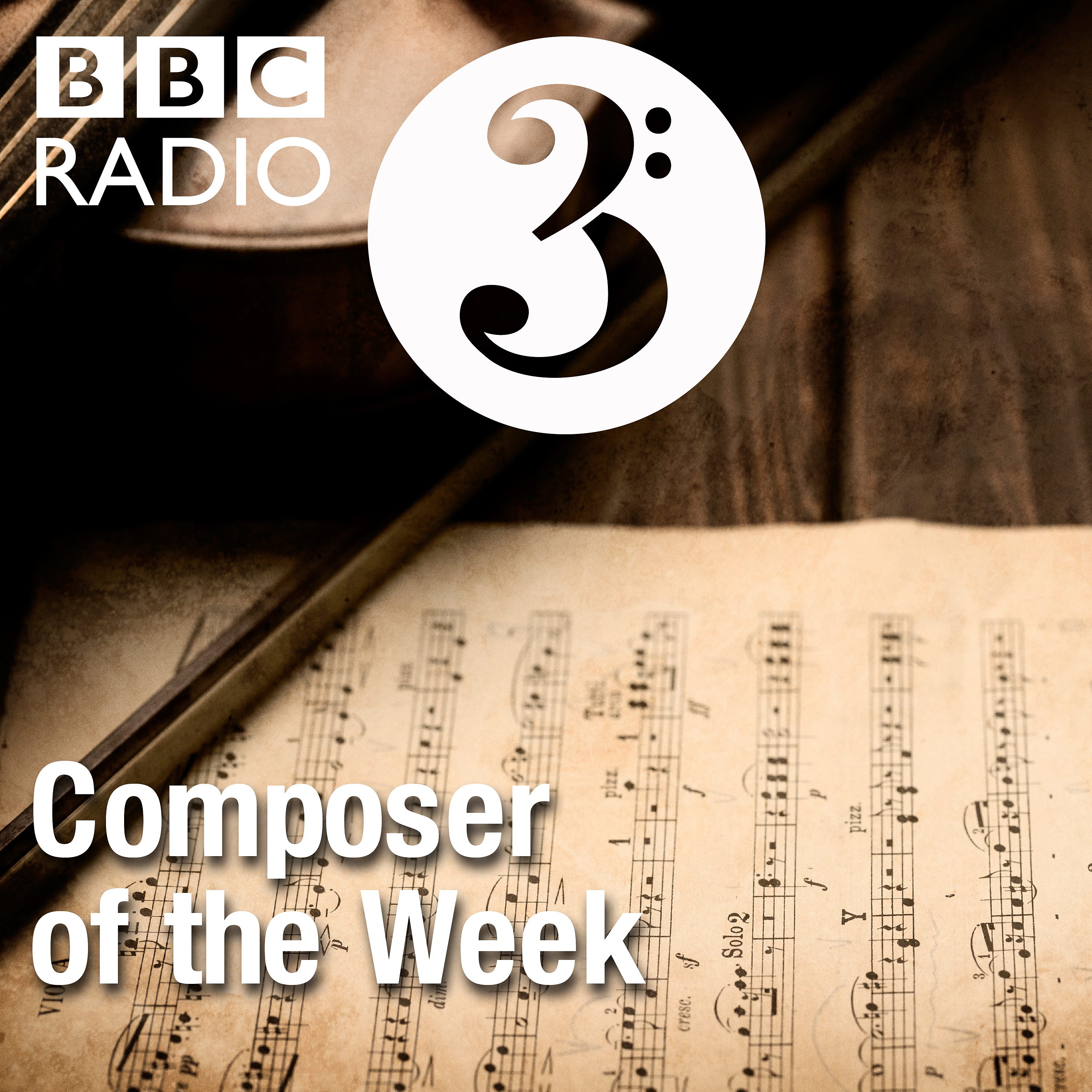Arnold Schoenberg (1874-1951)
Description
Kate Molleson explores the twists and turns of Schoenberg’s life
Is there a more controversial, infamous figure in 20th Century music than Arnold Schoenberg? Arguably no other twentieth-century composer’s ideas have been more influential among composers since, however his music is still neglected and misunderstood by programmers and audiences. Schoenberg was a revolutionary - one of the founders of musical Modernism - but he also recognised the importance of musical tradition. His music defined the times in which he lived, and whether you see Schoenberg as the most important innovator in 20th century music, or as a heretic who led his followers to an artistic dead end, he was absolutely dedicated to art – both musical and visual. This week, Kate Molleson explores the twists and turns of Schoenberg’s life, and tracks the composer’s changing relationship with art through the prism of 5 different visual works, from an image which terrified and obsessed Schoenberg as a child, through the composer’s own paintings, and one of his practical twelve-tone selection dials, to a portrait of Schoenberg painted while he was in exile in America, by his friend and fellow composer George Gershwin.
Music Featured:
Strauss (arr. Schoenberg): Roses from the South
2 Gesange, Op , No 1 “Dank”
4 Lieder, Op 2, No 1 “Erwartung”
Pelleas und Melisande, Op 5 (Langsam)
Verklarte nacht, Op 4
6 little piano pieces (No 6)
Mahler (by Schoenberg and Webern): Das Lied von der Erde (No 3, Of Youth)
Gurrelieder (excerpt)
String Quartet No 2, Op 10 (3rd mvt, Langsam, 'Litanei')
Erwartung (excerpt)
Friede auf Erden
De Profundis
Pierrot Lunaire, Op 21 (Act II excerpt)
Die eiserne Brigade (The Iron Brigade)
Bach (orch. Schoenberg): Gott Schopfer, heiliger Geist, BWV 631
Suite for piano, Op 25 (2nd mvt, Gavotte & 3rd mvt, Musette)
Suite, Op 29 (3rd mvt, Theme and Variations)
Accompaniment Music to a Film Scene, Op 34
Songs for male chorus, Op 35 (No 6 Verbundenheit "Man hilft zur Welt dir kommen")
Die Jakobsleiter (Ob rechts, ob links)
Kol Nidre, Op 39
Moses und Aron (Act II excerpt)
Concerto for String Quartet and Orchestra (after Handel)
Prelude to Genesis
Suite for string orchestra (2nd mvt, Adagio)
Brahms (orch. Schoenberg): Piano Quartet No 1 in G Minor, Op 25 (2nd mvt, Intermezzo)
Chamber Symphony No 2, Op 38b
A Survivor from Warsaw, Op 46
Notturno
Presented by Kate Molleson
Produced by Sam Phillips for BBC Audio Wales & West
For full track listings, including artist and recording details, and to listen to the pieces featured in full (for 30 days after broadcast) head to the series page for Arnold Schoenberg (1874-1951) https://www.bbc.co.uk/programmes/m0022k1r
And you can delve into the A-Z of all the composers we’ve featured on Composer of the Week here: http://www.bbc.co.uk/programmes/articles/3cjHdZlXwL7W41XGB77X3S0/composers-a-to-z
More Episodes
Donald Macleod explores Henry Purcell’s London
Henry Purcell was the most important English composer of the era, described as the "Orpheus Britannicus" for his ability to combine Baroque counterpoint with dramatic settings of English words. He composed music for the church, the royal court, the...
Published 11/22/24
Published 11/22/24
Kate Molleson explores the life and work of the amazing Bud Powell
This week Kate Molleson explores the life and work of a jazz giant in his centenary year: the amazing Bud Powell, in the company of Powell’s biographer Peter Pullman. Focusing on Bud Powell as a performer, prioritising his own...
Published 11/15/24


